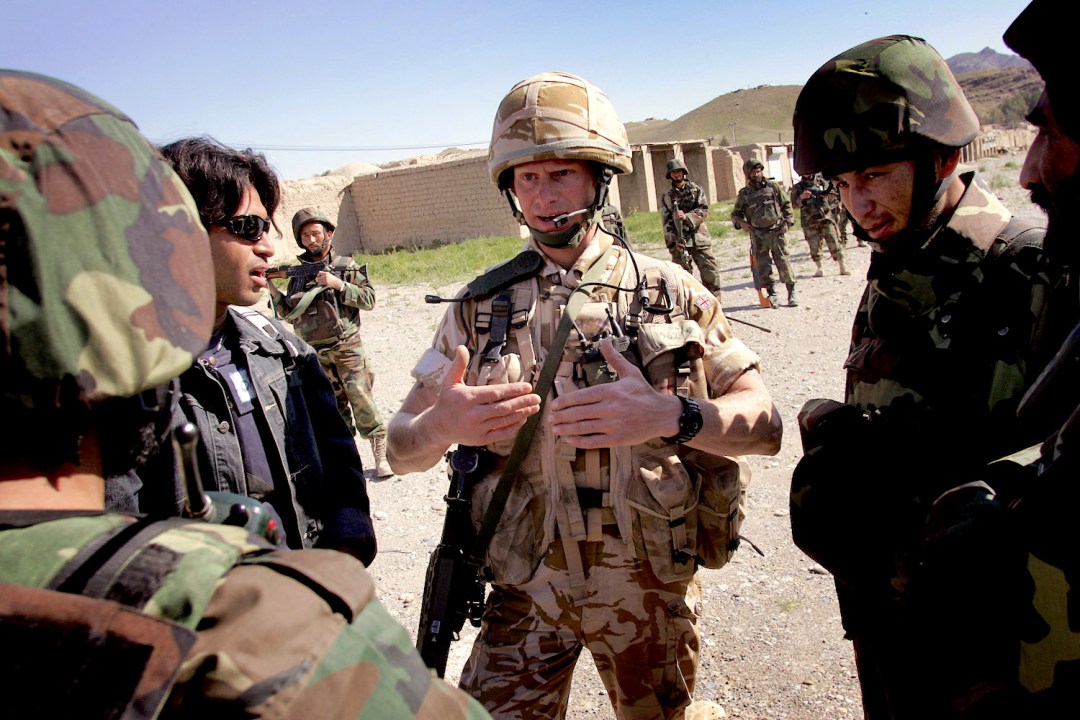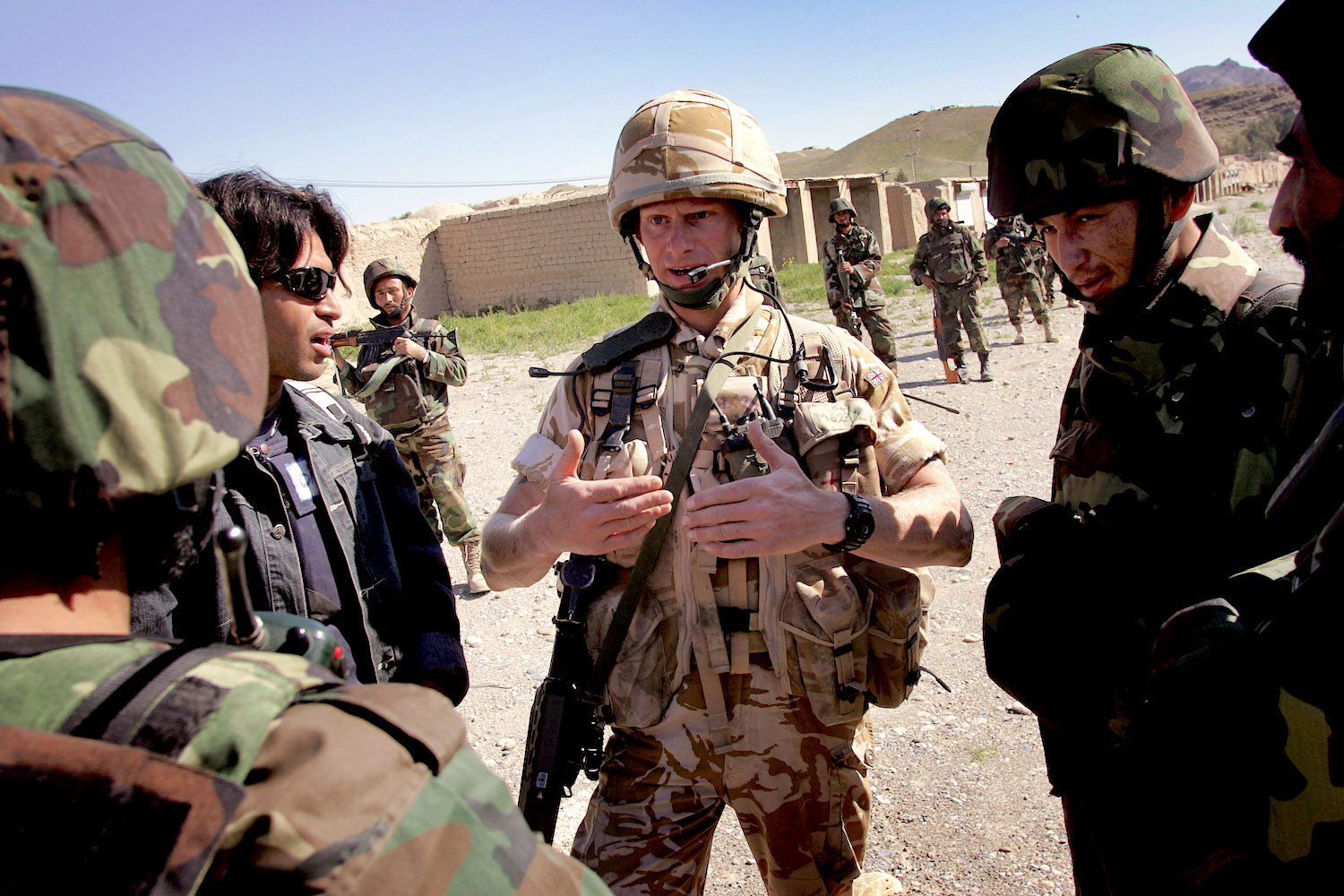The Afghan data leak has generated a mass of lurid headlines and, no doubt, there is still much analysis, pointing of fingers and assigning of blame to come. But how did it happen that the UK ended up with such an obligation to so many thousands of Afghans and their families? I support the evacuation, but clarity of ends does not necessarily justify the means.
My assessment is that between 2014 and 2021 – when we, along with other Isaf nations, had moved from a combat to a support and capacity-building role – we took our eye off the ball. We accumulated liabilities but had no real mechanism to understand or control them. In this we were hampered by the particular feature of the UK’s capacity-building: our focus was not on the main bulk of the Afghan security forces but on specialist units such as counter-narcotic forces, police commandos and intelligence units. (They were often known by their ‘task force’ designation, TF 444, TF 222, etc, hence the common nickname ‘triples’.)
The specialist units attracted the expertise and engagement of our special forces and intelligence agencies. They were highly successful, noted for their competence and effectiveness, and unlike the locally ‘employed’ civilians, of whom the interpreters are the best-known examples, the triples were employed by their Afghan ministries, not the British Armed Forces. The reality, however, was somewhat different. They were trained, mentored, supported, and in many cases, paid directly by us: their independence from us, in short, was nominal and hence they can reasonably be regarded as our local auxiliary forces and our responsibility.
All might have been well had not the fundamental premise upon which we were operating in that era, the continuing existence of a more or less competent Afghan government, began to unravel at the back end of Trump’s first presidency. This raised, as the army call it, a ‘question four’. We had to ask ourselves: has the situation changed and, if so, do we change the plan or even the whole mission? We answered poorly. Faced with deterioration of the Afghan government, we did not examine hard enough, nor think through quickly enough, the potential consequences.
President Trump’s dislike of ‘forever wars’ is visceral and real, and his advisors reckoned, not without reason, that peace would only come to Afghanistan if some sort of deal was done with the Taliban. No-one in 2020 envisaged an Afghan governmental collapse but it was quite clear by Aug 2020 that a peace-deal era Afghanistan would be unfriendly towards those with a strong link to the Allies. That, along with the strong moral case, drove a change of heart in the then defence secretary Ben Wallace and home secretary Priti Patel in how they would look after our interpreters. The presumption at the heart of the 2014 Intimidation Scheme was that our former interpreters would be resettled in Afghanistan; this was scrapped and henceforward they were all to be offered sanctuary in the UK. This new scheme, Arap, was to formally come into effect in April 2021.
What does not appear to have happened in the interim period from August 2020 to April 2021 was a ‘reading across’ of the logic that had driven the change in the interpreters’ scheme: if it was unsafe for interpreters, then wouldn’t those who had worked in our very active and very effective Afghan specialist units, trained and mentored by Britain, also be at risk? When this was raised with officials, they fell back either onto lawyerly arguments (‘they’re not employed by us’) or Panglossian ‘finger-crossing’. Somehow, they hoped, everything would turn out fine. It did not help that much of the mentoring had been conducted by ‘secret squirrel’ organisations. Information was held in silos, so the scale of our engagement, and thus knowledge of the extent of our liability, was partial at best.
Who actually ‘owned’ Afghanistan in Whitehall?
When President Biden directed, in April 2021, that US forces would only now fire in self-defence and would leave Afghanistan by the summer, what previously might have been regarded as a risk, now became a certainty. As Afghan units were progressively overrun, widespread massacres and brutality took place. This was particularly so with Afghan specialist units, whom both the Taliban and their Pakistani ISI directors were keen to eliminate. It is that which drove the desperation of the scenes at Kabul airport. The 2,000 to 3,000 we expected to evacuate through Operation Pitting turned into 15,000, as desperate Afghan commando units fought their way to the airport. That still left many thousands more, in hiding and in fear, hoping that their previous supporters and paymasters would not forget them.
It is this mess that the hapless Marine had to sort-out. In desperation, he made a mistake but given the complexity he was trying to resolve, across so many disparate agencies, one questions the decision to have, in effect, a single, potential, point of failure. Earlier, during the interim period, and even after the Biden betrayal, the scale of our liability could have been recognised, plans developed, and parliament briefed. None of that happened. This all, of course, coincided with the Covid crisis and in UK, the aftermath of Brexit; even in the Behemoth that is Whitehall, we should acknowledge there is a ‘bandwidth’ problem. But who actually ‘owned’ Afghanistan in Whitehall? Who might have foreseen this problem? Who might have fixed it? I struggle.








Comments